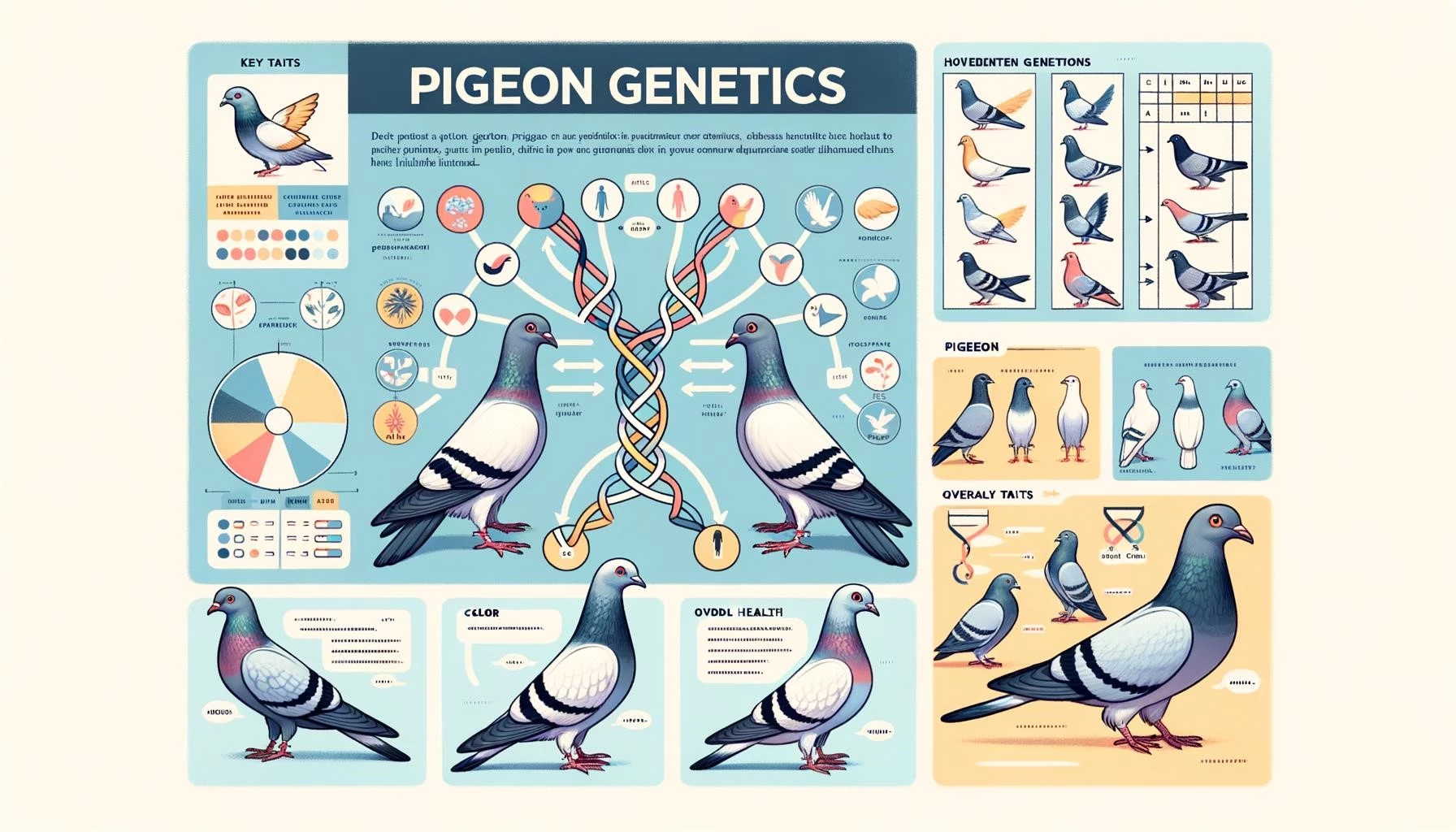Pigeons, part of the Columba livia species, are fascinating creatures that have a long history of coexistence with humans. Over the years, humans have selectively bred pigeons for various traits, which has resulted in a wide range of genetic variations and phenotypic diversity. The field of pigeon genetics explores the underlying genetic mechanisms behind these traits and the impact of genetics on pigeon health and susceptibility to diseases.
Key Takeaways
- Pigeons exhibit a wide range of genetic variations and phenotypic diversity due to selective breeding by humans.
- Genetic research on pigeons aims to understand the underlying genetic mechanisms behind traits and their impact on health and disease susceptibility.
- Pigeon diseases, such as Young Pigeon Disease Syndrome (YPDS) and respiratory diseases, can have genetic components that influence susceptibility and severity.
Genetic Factors in Pigeon Health
Pigeons, like other living organisms, are influenced by genetic factors that can impact their health and overall well-being. Genetic variations related to disease resistance, adaptability, and overall fitness can contribute to a pigeon’s lifespan. Inherited factors affect their susceptibility to diseases and their ability to adapt to different environments.
Research has shown that certain genetic abnormalities or mutations in pigeons can result in health issues that shorten their lifespan. For example, pigeons with congenital heart defects or weakened immune systems may be more susceptible to diseases and have a shorter lifespan.
Pigeon Diseases with Genetic Components
Several diseases in pigeons have genetic components that influence susceptibility, severity, and transmission. Young Pigeon Disease Syndrome (YPDS) is an immunosuppression syndrome associated with specific pathogens, including Pigeon Aviadenovirus A (PiAdVA) and Pigeon Circovirus (PiCV). These viruses can cause significant morbidity and mortality in young pigeons.
Additionally, respiratory diseases in pigeons, such as chronic obstructive pulmonary disease (COPD) and asthma, have a polygenic basis. Genetic variations can contribute to the development and severity of these respiratory disorders in pigeons.
Genetic Research and Pigeon Traits
Genetic research on pigeons also focuses on understanding the genetic basis of various traits and characteristics exhibited by different breeds. Pigeons with different coat colors and patterns, eye colors, feather pigmentations, and other traits have distinct genetic variations underlying these features.
By studying the genetic basis of traits in pigeons, researchers gain insights into the fundamental mechanisms of avian and vertebrate diversity. Additionally, genetic studies on pigeons can shed light on general mechanisms of evolution and the genetic changes that give rise to diverse phenotypes.
In conclusion, pigeon genetics is a fascinating field that explores the genetic variations and traits exhibited by these birds. Genetic factors play a significant role in pigeon health, disease susceptibility, and overall diversity. Studying pigeon genetics not only enhances our understanding of pigeons themselves but also provides valuable insights into broader principles of genetics and evolution.









